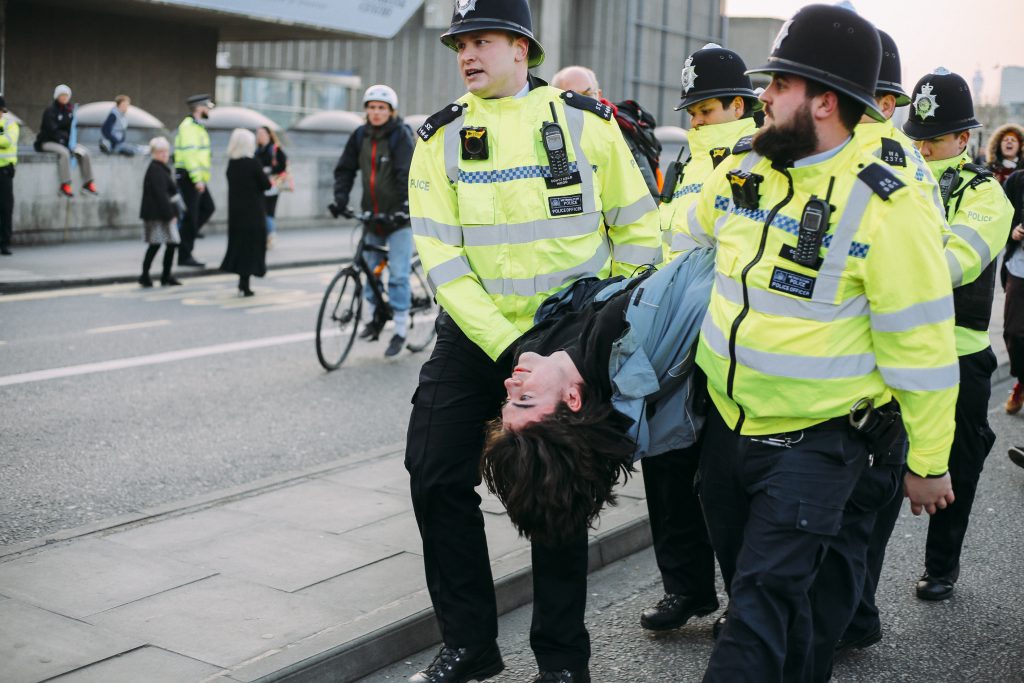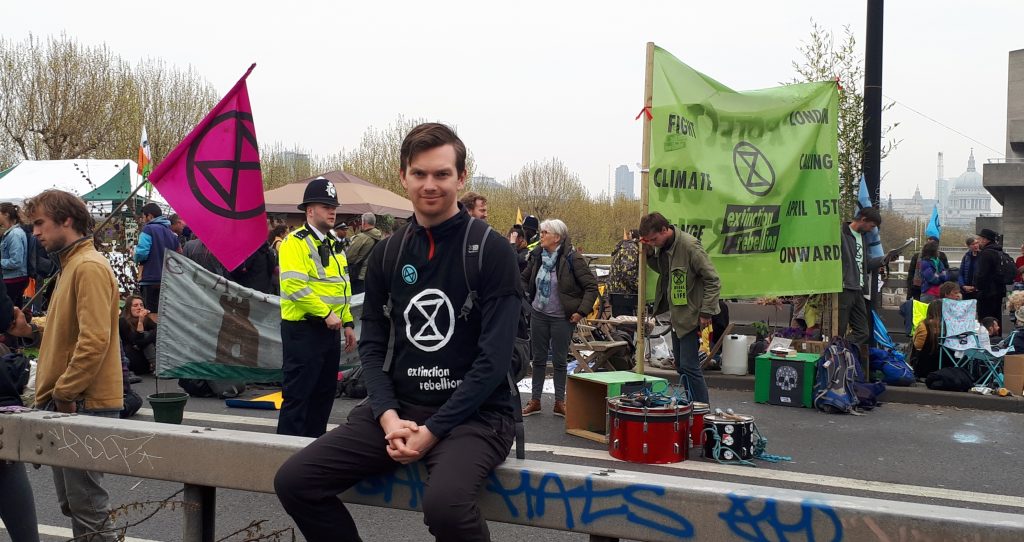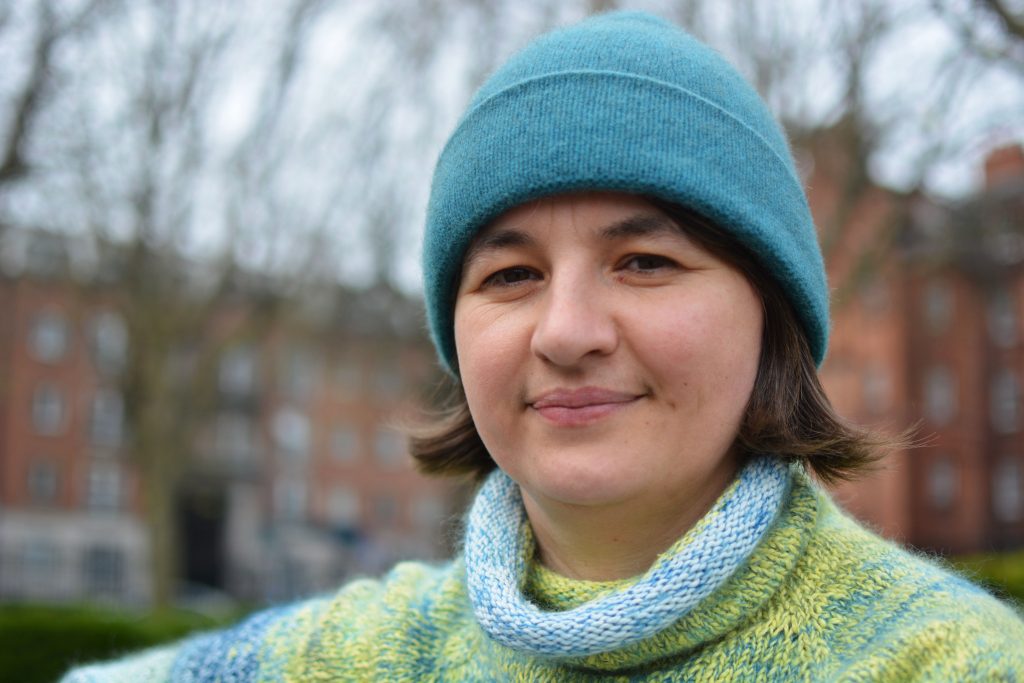Extinction Rebellion: The faces of the Irish movement

April 18th, 2019
Activists from the Extinction Rebellion movement in Ireland are set to “disrupt business as usual” in Dublin tomorrow as part of the Week of International Rebellion taking place across the world.
Our Kayle Crosson sat down with some of the faces of the growing movement protesting against “criminal inaction on the climate and ecological emergency”.
By his own account, Paul McCormack Cooney doesn’t have much of an activist background. Although difficult to imagine now, he says, there was a time when he didn’t think about climate change all that much.
Cooney is now one of thousands expected to engage in peaceful civil disobedience across Ireland this weekend as part of the Week of International Rebellion taking place in over 40 countries.
His climate enthusiasm, he says, was first peaked in 2006 when he watched Al Gore’s documentary An Inconvenient Truth. The same year, he moved to Sydney and lived through what was then the hottest summer on record in Australia.
Cooney continued to read about climate change and shared the occasional story on social media but didn’t go much beyond this until last November when the bombshell Intergovernmental Panel on Climate Change (IPCC) hit.
The report warns that we only have 12 years to take concrete action to limit the average global temperature to the 1.5°C target outlined in the Paris Agreement.

Warnings hit home
The “shocking” warning hit home harder when Cooney took into account the future of his children, eight-year-old Sophia and her little six-year-old brother Finn.
“12 years from now, Sophia is going to be 20. Finn is going to be 18. They will ask me, ‘what did you do when this report came out,’” Cooney says. “And I want to be able to say I did as much as I can.”
Cooney’s transformation into a fully-fledged climate activist started with a two-day Cool Planet training course soon after the release of the IPCC report.
One thing led to another and Cooney soon became involved in opposing the proposed development of a liquefied natural gas (LNG) terminal in the Shannon Estuary. He then attended an Extinction Rebellion planning session in Dublin in February and “just kind of got sucked in”.
The decision to get involved was a “natural progression”, he says. “I just went from one event to the next and I found myself putting my hand up to be involved in the planning for the Funeral for Humanity.”
The mock memorial service in March was one of the first public actions held by the Irish branch of the Extinction Rebellion movement to highlight the current ecological crisis facing the world.
One month later, environmental activists formally set-up a Dublin branch of Extinction Rebellion that is set to “disrupt business as usual” this Friday in front of the Spire. Cork-based members are also planning a “die-in” on Saturday.
Rebellion rising
The non-politically affiliated organization began last year when a dozen people gathered in a cafe in Bristol, quickly rising to prominence in November 2018 when thousands of activists blocked London bridges, disrupted traffic, and glued themselves to public buildings.
The group’s main demands include the declaration of a climate and ecological emergency and immediate government action to halt biodiversity loss and reach net zero emissions by 2025.
The latter is a particularly lofty aim, yet, as one of the founding members of the movement Roger Hallam says, ambitious goals are vital to push policymakers in the right direction.
“People will tell you that things aren’t possible. It’s a closed system and you have to believe in the impossible and it becomes possible,” Hallam told The Green News.
The movement uses non-violent civil disobedience, he says, with the disruption to daily life paling in comparison to what’s coming down the line without urgent action from
“We’re not trying to cause people harm and distress because we like it or anything,” he says. “It’s just because there’s no other method to sort the situation out. People only change when they are confronted in a visceral and material way with the reality of the situation.”
The group’s method of civil disobedience is largely based on the US Civil Rights movement in the 1960s as it encompasses a “moral message” that Hallam says goes beyond traditional activism.
“Traditional activism has been focused on a material aspect, like closing down a coal station, which has logic to it but it’s not a strategy that’s going to create mass attitude change.
“That’s the fundamental democratic challenge – disrupt their way of life to the extent that they take on their responsibility as citizens and adults to protect the next generation. And that’s a moral message as it was in the civil rights movement,” Hallam finds.

‘Criminal Inaction’
The Irish branch is demanding similar action from Leinster House, forced to act due to the “criminal inaction” from our political institutions. And the data confirms our laggard status.
The 2019 Climate Change Performance Index released in December singled out Ireland as the worst performing country in Europe for addressing climate change for the second consecutive year.
In addition, the most recent Environmental Protection Agency (EPA) data demonstrates that Ireland remains drastically off track to meet its 2020 and 2030 climate targets.
Extinction Rebellion Ireland member Dr Ciaran O’Carroll says that those participating in Friday’s action have reached a situation where they “have no choice” left.
“We have tried marching and lobbying and signing petitions. Nothing has brought about the change that is needed,” O’Carroll says.
The Irish movement has not ruled out the possibility of following its British counterparts in putting themselves in situations where they may be arrested, including plans to block traffic on O’Connell Street.
The arrest of protesters, O’Carroll told The Green News “shows people you’re willing to make a sacrifice for what you believe in”.
“Communities will appreciate that someone is willing to put themselves on the line for the betterment of all,” he says.

Unifying movement
And for many members of the movement, Extinction Rebellion also provides a space for communion amongst those who are concerned about a growing ecological crisis.
“[After] the first meeting, I immediately emailed everyone [at the meeting] who said they were in Dublin,” Extinction Rebellion Ireland member Oana Marian recalled. “I think it’s, in a way, to be less isolated, and this already had legs and energy behind it.”
Another member, Sue Breen, finds a similar sense of community in the movement. “It had this real family feel – everyone’s coming into this with their hearts broken, and with the weight of what they’re beginning to comprehend about what’s happening to their planet,” she says.
For Cooney, the weight he feels finds itself on a pamphlet he wrote titled A Father’s Plea to the People of Ireland: We Need to Demand a Climate Emergency.
In the concluding paragraph, he writes: “We’re the last generation with a chance to prevent the worst. We can’t wait for our kids to grow up and solve it. It’ll be too late.
We’re all the victims in this story. All of us. We’re also the villains. Whether we end up being the heroes or not depends on what we do over the coming decade.”
[x_author title=”About the Author”]







